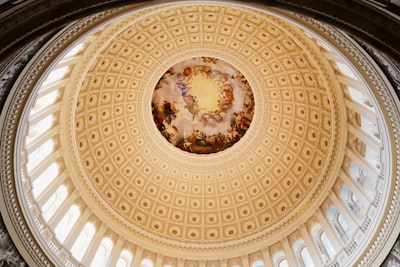Summary
After a marathon debate and a tense 50-50 split, Senate Republicans have narrowly passed former President Donald Trump's flagship tax and spending bill, with Vice President JD Vance casting the decisive vote. The legislation, dubbed the 'One Big Beautiful Bill Act,' aims to make Trump's previous tax cuts permanent while offsetting lost revenue by significantly cutting spending on social programs like Medicaid and food subsidies. The stalemate revealed deep fissures within both the Republican party and Congress at large: three Republican senators (Collins, Tillis, Paul) joined every Democrat in voting no, and Alaska's Lisa Murkowski only supported the bill after last-minute negotiations. The Act now returns to the House, where its survival remains uncertain due to opposition from both fiscal conservatives concerned about ballooning deficits and others uneasy with deep social program cuts. Notably, Elon Musk—once a Trump ally—has turned against the bill, threatening political repercussions for its supporters.
Analysis
This episode encapsulates several lingering themes in American politics: polarization, intra-party strife, and the perennial tension between tax cuts and social support. The bill’s passage in the Senate was enabled by hard pressure and a sense of urgency—Trump’s imposed Independence Day deadline—rather than broad consensus or robust deliberation. Senator Murkowski’s reluctant support, citing a rushed process and concern for vulnerable populations, is emblematic of the bill's ambivalent foundation.
The Republican push to enshrine tax cuts by slashing public welfare programs is classic supply-side orthodoxy, but the political landscape has shifted. The deficit—projected to swell by $650 billion a year per internal GOP estimates—gives fiscal hawks ammunition to attack the bill from the right, exposing ideological fractures. Meanwhile, critics across the spectrum argue the bill’s hurried progress undermines democratic scrutiny and disproportionately harms vulnerable Americans.
Furthermore, the tone and framing of the legislative struggle reflect strategic messaging: characterizing the legislation as “big” and “beautiful” attempts to make fiscal constraint palatable, while arm-twisting moderates into line. The highly publicized opposition by Elon Musk—who stands to lose from cuts to green technology subsidies—adds yet another unconventional twist, as a former key ally now threatens to disrupt the fragile coalition that brought Trump to power.
Discussion
Why does this episode matter? At its heart, the battle over Trump’s mega-bill is not just about line items and dollar signs; it’s about competing visions for the future of government and society. Do tax cuts for all justify rolling back spending that undergirds America’s safety net? Who bears the brunt of fiscal discipline, and who reaps its rewards? In forcing through a transformative bill on a tight deadline, the current Congress is testing the limits of party loyalty, democratic process, and the meaning of leadership.
The high drama recalls historical episodes—Obamacare’s passage, the 2017 tax overhaul—but with distinct 2025 twists: social media threats from billionaire kingmakers, visible fractures among traditional conservative blocs, and high-stakes brinkmanship that leaves the country uncertain about its fiscal and social trajectory. If the House fails to pass the amended bill, it would mark a stinging defeat for Trump’s second-term agenda. If it succeeds, expect an intense backlash not just from Democrats and policy advocates, but also from unsettled constituents who may feel the effects of program cuts firsthand.
Critical questions remain: Is it possible to pursue bold fiscal reform without sacrificing democratic transparency or social cohesion? Can the GOP bridge its widening internal divides? And what happens when technocratic and populist impulses collide, as seen in Musk’s revolt?
In sum, the saga of the 'Big, Beautiful' Bill is a microcosm of today’s turbulent American politics: ideological battles, strange-bedfellow alliances, and a future that is anything but clear.

Comments
No comments yet. Be the first to comment!